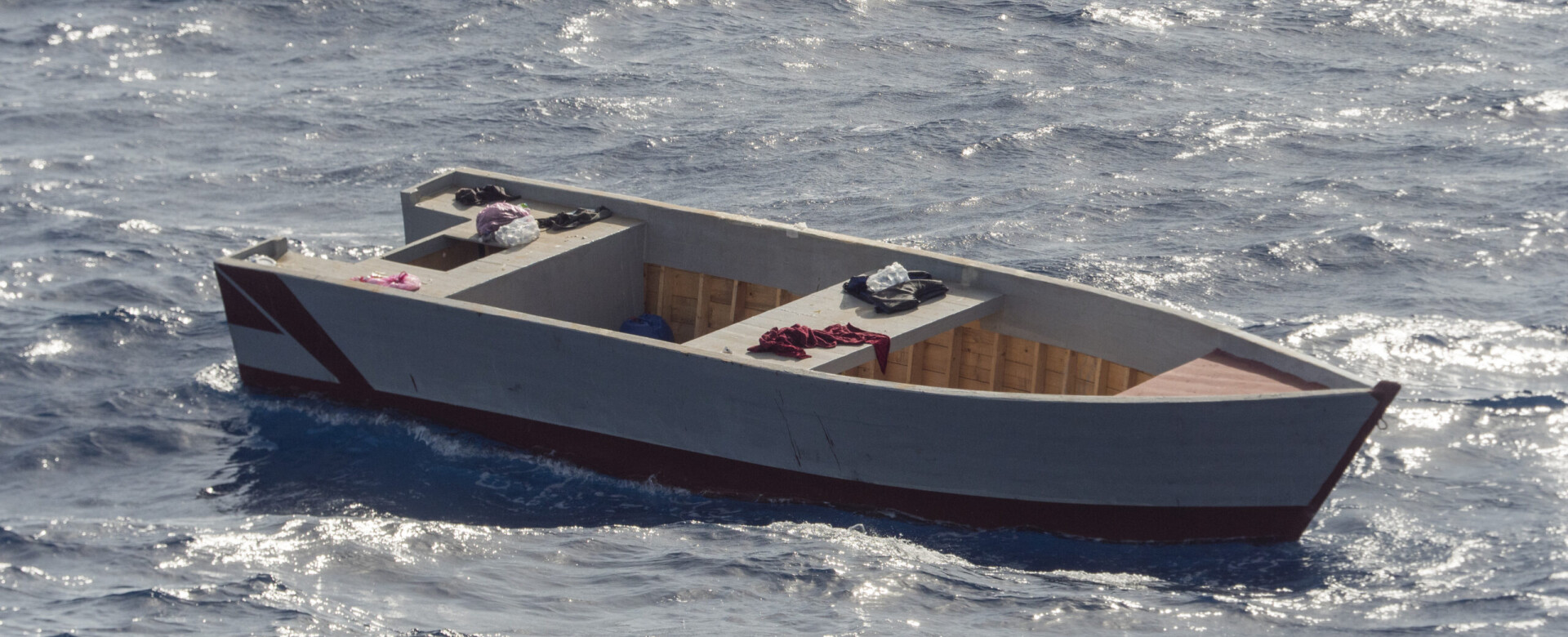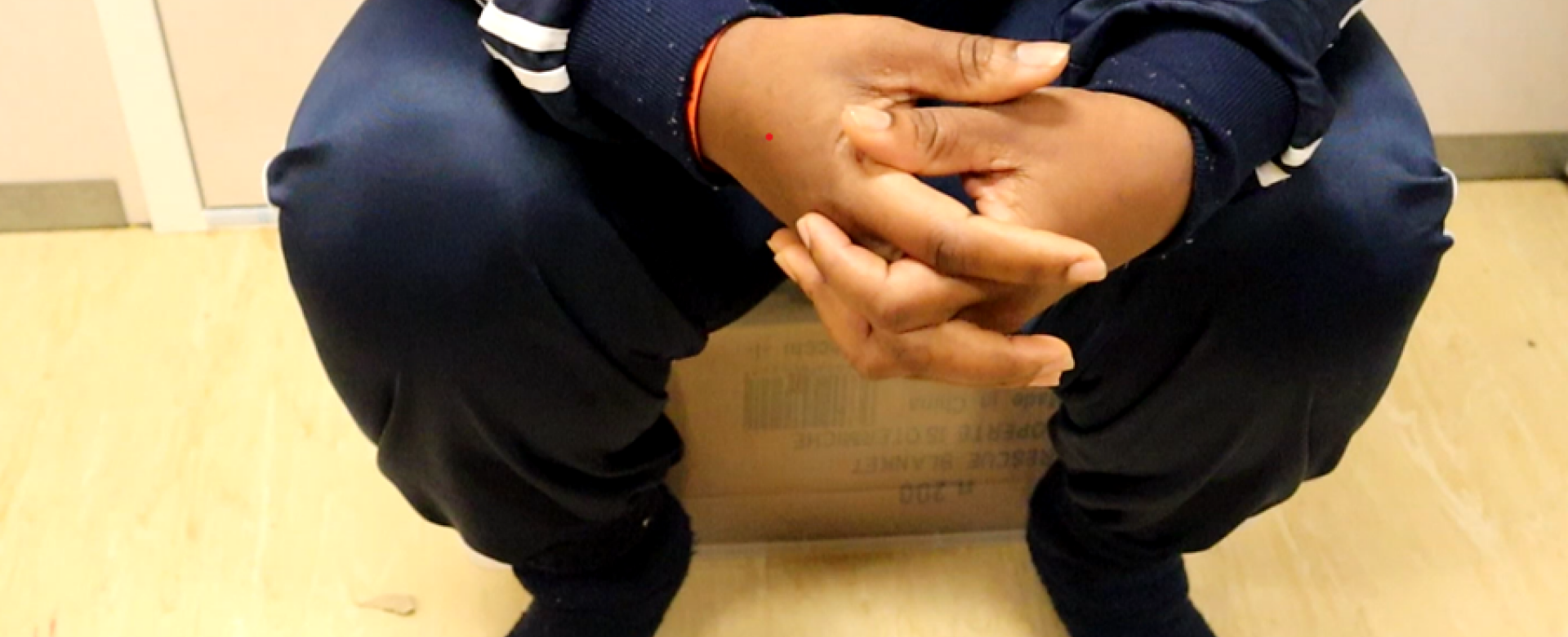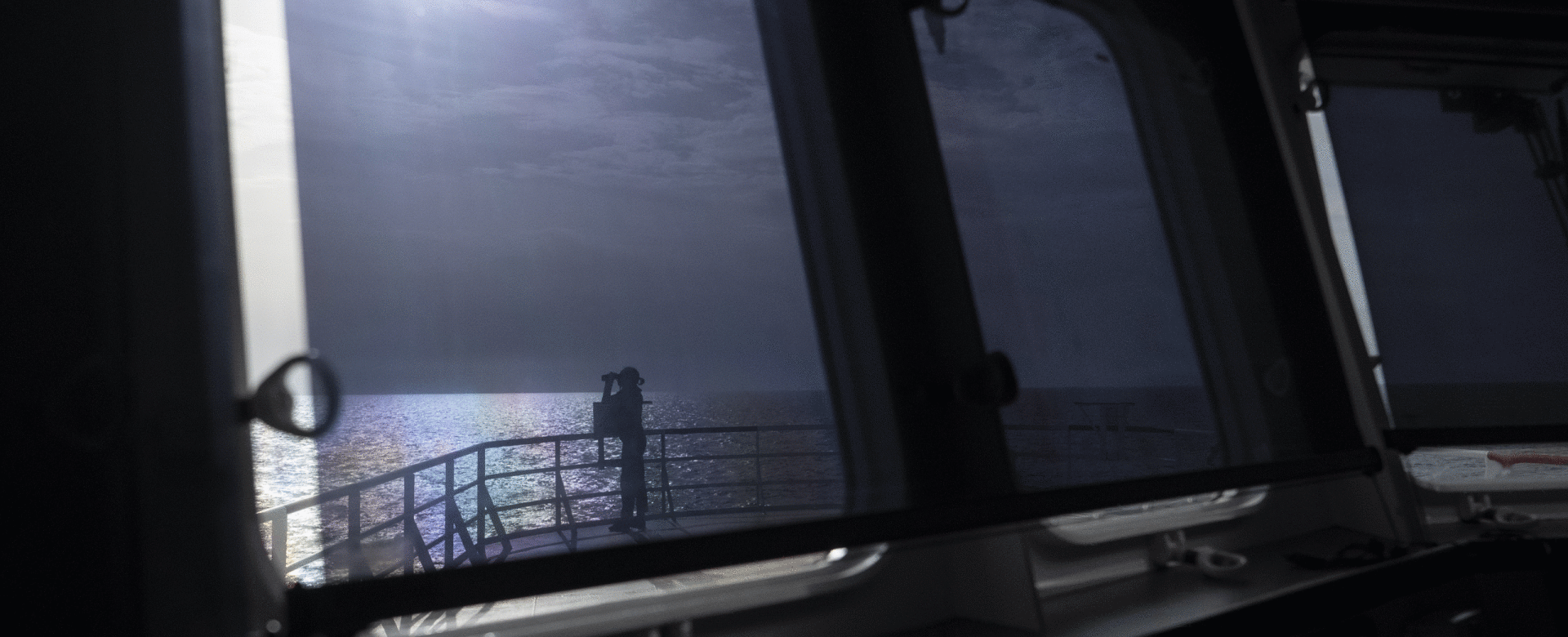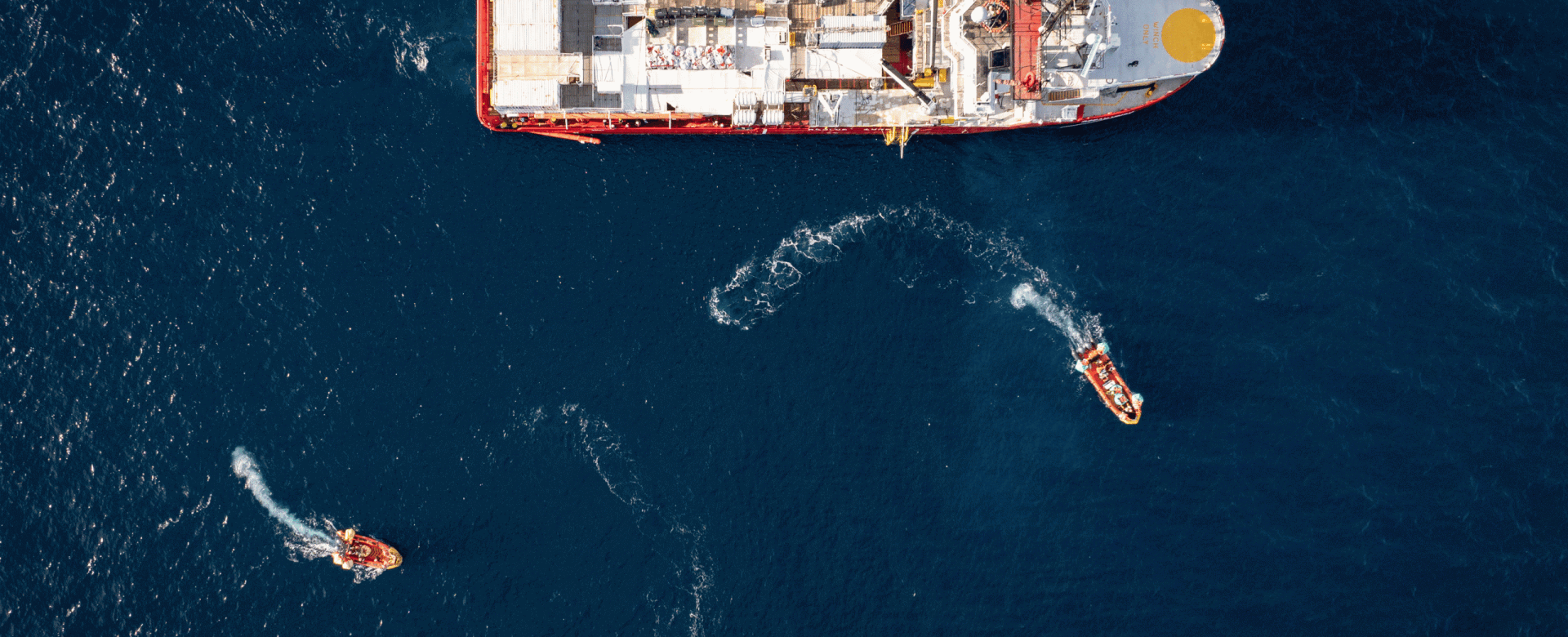
Jahia *, 22 years old, from Cameroun, was one of the 295 people rescued by the team of the Ocean Viking between April 24 and April 27. Jahia was rescued from a rubber boat in distress along with 58 other survivors after the boat was spotted from the Bridge of the Ocean Viking. Despite her young age, Jahia as already the wisdom of an old lady. She left her country alone, at 17-year-old, after being forced into marriage. She was kidnapped in Niger, driven to Libya, bought as a slave for forced labour twice and eventually decided to flee Libya, without ever thinking to initially going to Europe. She shares with us her difficult path in an uninterrupted flow of eloquent words.
“I spent five years in Libya, I left Cameroun when I was 17, after I was forced into marriage. I can’t explain that because it’s very painful, too painful. I went first to Nigeria, Benin, Niger. At the border with Niger, I was kidnapped with other people fleeing their country. This group of men asked us to pay 500 000 CFA to be released. They told us to call the families while beating us to reach this amount. I no longer had a family to call. I could not be released. Those like me were put in trucks. We crossed the desert for three days. Without food or water. Three people fell sick during the journey. Two died. They were thrown in the desert.
We were driven to Libya. Upon arrival, people came to the trucks. Some of them were buying two of us, some were buying three of us, others were buying one. I have been taken alone by Mr. Ibrahim.
I worked for three years in his home, for his entire family. I could never go outside and was only cleaning everything all the time. I’ve never been paid, not once. I was not allowed to rest, neither at night, nor during the day. The few sleeping times I had were in his shop. And I was only allowed to eat once a day.
One day, I fell severely ill. Mr. Ibrahim was afraid that I would die at his place, so he sold me to another Libyan. Thank God, this man was nice to me: I had access to food when I wanted. He had two children and I was taking care of them. I was well treated: sometimes when he took his children to the fair, he would take me with them so that I could have fun too. I stayed two years there, but I was still unhappy, because I was not free. I needed to be free like everyone else, to get my life back on track like every other girl of my age. I escaped.
In a construction site, I met with people who had also fled their country. A Senegalese man hid me and gave me clothes and food. I stayed two months at his place. One day he asked me if I wanted to go to Italy. I asked him if it was possible from Libya. He answered: “yes, it’s no dangerous, you can cross”.
I accepted.
One day, he brought me to place where there were other people who fled their country like me. Every person had they story. Some people left their country because of political reasons, some because of the war, other because of forced marriage, some because of misery. Each and every one of them had a story. One night, people took us and put us at sea, on a dinghy, at 3am. Not even one hour after, the wooden plank at the bottom of the zodiac broke in two parts. Water started to enter. We scooped water, over and over. Many people were sick because of the waves and the smell of fuel. The mix of fuel and salty sea water burned my leg too. Fortunately, some hours later you rescued us.
I want to have a normal life, like everyone else. I’d like to resume my studies. I want to be married because of love. I want to work and be to be paid. I want to have kids. I want to be a nurse. I always wanted to save lives of people, since I am a child.
I share my story today because I want to raise awareness to everyone about what is happening in Libya. Libya is not a country known by all. I didn’t know Libya before arriving there. I want to make the world aware of what is happening in Libya: the slave trade, the detention centres, everything. If someone goes to Libya, he must expect the worse. Black people are considered like sheep. Some people built their own private “jails” in their garden, detention places that are not recognised by the state. When they kidnapp black people, they put them there, and ask for ransom to their family while beating them. Sometimes they ask up to 1 million CFA. They kill people if they don’t have money. We have no rights in Libya.”
*The name has been changed to protect the identity of the survivor.


